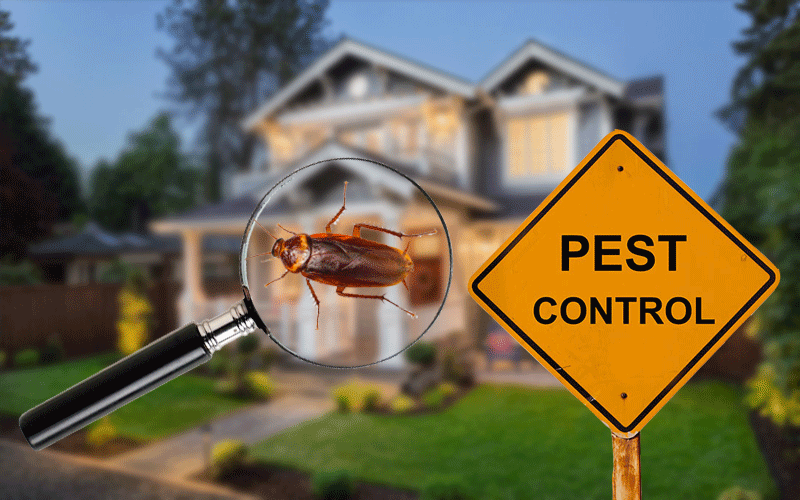A1 Bed Bug Exterminator Charlotte - Reliable and Economical Services
A1 Bed Bug Exterminator Charlotte - Reliable and Economical Services
Blog Article
Bed Insect Treatment Failure: Comparing Chemical Vs. Non-Chemical Solutions
In the world of parasite control, particularly when taking care of the relentless issue of bed insects, the option in between chemical and non-chemical therapy remedies can be a crucial one. Both approaches use distinct benefits and drawbacks, influencing variables such as effectiveness, safety considerations, and general price. By checking out the nuanced information of each method, a clearer understanding of which path to seek in addressing a bed insect invasion can be obtained.
Effectiveness of Chemical Treatments
Chemical treatments for bed bug infestations have actually been widely recognized for their powerful and rapid efficacy in eliminating these insects. When taking into consideration the efficiency of chemical therapies, it is critical to understand that they can provide a quick and comprehensive service to a bed pest trouble. Specialist pest control experts usually rely on pesticides to target bed pests at numerous phases of their life process, consisting of fairies, eggs, and grownups. These chemicals generally work by interrupting the bed pests' anxious system, resulting in paralysis and eventual fatality.
Moreover, chemical treatments have the benefit of providing recurring impacts, indicating that they can continue to eliminate bed insects also after the preliminary application. This recurring activity is particularly helpful in combating any potential re-infestations. In addition, the fast action of chemical therapies can bring alleviation to individuals encountering extreme bed bug problems, allowing them to restore control of their living rooms rapidly.
Safety Interest In Chemical Solutions
When making use of chemical solutions for bed bug therapy is ensuring the safety of owners and the environment,One vital aspect that requires cautious consideration. While chemical treatments can be reliable in getting rid of bed pests, they might present threats if not dealt with correctly. One of the primary security interest in chemical solutions is the potential harm they can trigger to human health. Direct exposure to particular chemicals utilized in bed insect treatments can bring about breathing concerns, skin irritation, or various other damaging responses, especially in people with pre-existing problems or sensitivities. Furthermore, improper application or dose of chemical pesticides can lead to harmful deposits remaining in the treated location, presenting long-term health and wellness dangers to residents.
Moreover, the ecological impact of chemical options is one more considerable factor to consider. Some pesticides utilized in bed bug treatments might be hazardous to advantageous bugs, wild animals, and environments if they leach into the dirt or water supply. It is necessary to use chemical treatments deliberately, following safety and security guidelines, and thinking about much less toxic options to alleviate these dangers and make certain the safe and effective management of bed pest problems.
Advantages of Non-Chemical Approaches
Considering the try this website potential security issues and environmental influence connected with chemical services for bed insect treatment, discovering non-chemical techniques presents an encouraging alternative with several unique benefits. Non-chemical therapies are ecologically pleasant, as they do not add to air or water contamination, making them a lasting option for insect control.
Additionally, non-chemical options can be effective in targeting bed pests, including hard-to-reach locations where chemical treatments might not penetrate. Techniques such as warmth therapy, vacuuming, steam cleansing, and cushion encasements provide comprehensive eradication without using hazardous chemicals. Furthermore, non-chemical approaches can be much less turbulent, requiring marginal prep work and permitting quicker reentry right into dealt with areas. Generally, opting for non-chemical bed pest treatment approaches not only prioritizes security and ecological protection however additionally guarantees extensive and click for info effective parasite control.
Limitations of Non-Chemical Treatments

In addition, non-chemical therapies frequently need numerous applications to achieve effective elimination. This can be time-consuming and may not constantly assure complete removal of all bed bugs and their eggs, especially in hard-to-reach or hidden areas.
Additionally, the success of non-chemical therapies greatly depends on correct execution and thoroughness, which can be testing for people without professional knowledge. Insufficient application of non-chemical approaches might result in insufficient removal, causing relentless invasions and the need for additional treatments.
As a result, while non-chemical therapies have their advantages, it is vital to recognize these constraints and consider them when identifying the most efficient method for taking care of bed pest problems.
Price Contrast: Chemical Vs. Non-Chemical Options
Given the restrictions connected with non-chemical treatments, a crucial facet to evaluate in the context of bed bug administration is the cost comparison between chemical and non-chemical alternatives. Chemical therapies generally include the application of insecticides by specialists, which can vary from $250 to $900 per space, relying on the extent of the infestation and the size of the location to be treated. In contrast, non-chemical treatments like warm treatment or steam can be extra pricey, with expenses ranging from $1,000 to $6,000 for a whole home. While the initial price of chemical treatments might appear reduced, multiple therapies may be needed to fully eradicate the problem, potentially enhancing the general cost. On the various other hand, non-chemical choices might supply an extra environmentally friendly and lasting remedy, although they can be cost-prohibitive for some people. Eventually, when thinking about external pest control the cost of bed pest treatment alternatives, it is essential to weigh the ahead of time expenses versus the effectiveness and long-lasting sustainability of the chosen approach.
Conclusion

Taking into consideration the potential security issues and ecological impact connected with chemical solutions for bed bug treatment, exploring non-chemical strategies presents an appealing option with numerous distinct advantages.Provided the constraints associated with non-chemical treatments, a necessary element to assess in the context of bed insect management is the expense contrast in between chemical and non-chemical alternatives. In contrast, non-chemical treatments like heat treatment or vapor can be more expensive, with costs ranging from $1,000 to $6,000 for an entire home. While the first cost of chemical treatments may seem lower, multiple therapies might be required to fully eradicate the infestation, possibly raising the general cost.In verdict, when contrasting chemical and non-chemical bed insect treatment alternatives, it is essential to consider effectiveness, safety, benefits, restrictions, and expense.
Report this page